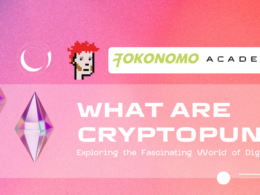The synergy between the metaverse concept and digital real estate is evident. However, akin to numerous crypto trends, the available media coverage often lacks the necessary depth. Therefore, similar to any other investment, it’s imperative to gain a comprehensive understanding of metaverse real estate before venturing into the acquisition of digital land. When contrasted with purely artistic non-fungible tokens (NFTs), metaverse real estate stands out for its ease of comprehension, owing to its evident utility and practical applications.
What is the Presence of Real Estate Like Within the Metaverse?
For individuals who are newly exploring the metaverse, the concept of digital real estate might initially appear as a paradoxical notion. The conventional linkage between real estate and physical property is deeply ingrained in our understanding. However, within the metaverse, real estate established on blockchain technology, even though it lacks physical existence, bestows upon its owners equivalent, if not stronger, rights of possession over a parcel of (digital) land. In this context, the ownership of land within a game, community, or any other platform is symbolized by a non-fungible token (NFT).
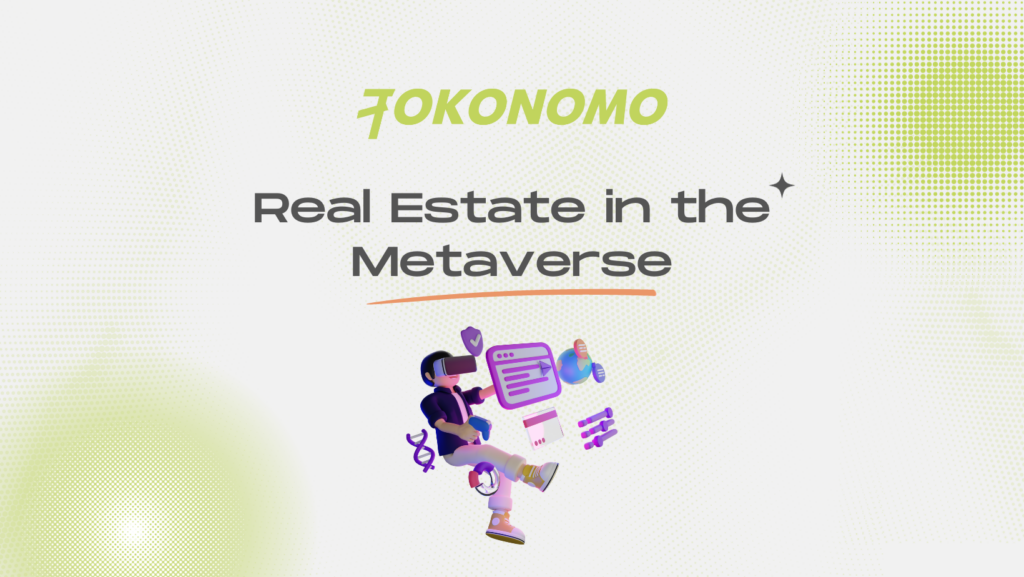

NFTs, by virtue of their unique and non-interchangeable nature, securely establish digital ownership, essentially performing a role akin to property deeds in the realm of digital real estate. These NFTs can be transacted, acquired, and divested in accordance with their market valuation, which is determined by a spectrum of factors.
In your metaverse, the value of your real estate may be considerably elevated if it happens to be located in a highly frequented area with a substantial influx of digital visitors, rendering it a prime venue for advertising activities. Additional incentives such as staking benefits and other utilities can further augment the value of the land. The specific metaverse platform you choose to inhabit plays a pivotal role in ascertaining the worth of your virtual property.
Certain metaverse platforms extend a considerable degree of personalization, affording you the opportunity to construct and curate your own space, organize events, and craft unique experiences. Prominent examples of this capacity can be observed in creations like “The Snoopverse” within “The Sandbox” and Netflix’s content integration within “Decentraland.”
The Allure of Metaverse Real Estate
To gain insight into the allure of metaverse real estate, it’s essential to step back and examine the overarching appeal of NFTs in their entirety. From a technological standpoint, NFTs offer genuine digital proof of ownership, a crucial asset in a world where duplicating files with no noticeable distinctions has become effortless.
Additionally, one must delve into the realm of collectibility, a fundamental aspect of human nature. Throughout history, people have exhibited a profound passion for amassing various items for diverse reasons. Beyond sheer enjoyment and collectible value, an NFT can provide tangible advantages, such as enhanced utility within a gaming environment or platform.
Another facet of NFTs’ allure is their potential as investment instruments, which is why numerous individuals hold them in a speculative manner. During robust market conditions, NFT prices typically tend to mirror the upward trajectory of the overall market. Furthermore, NFT boom periods are, to a certain extent, fueled by the excitement generated by celebrities and media attention surrounding the technology.
Many individuals opt to acquire metaverse real estate NFTs as they embody all the aforementioned principles. A notable example is JPMorgan, which has made acquisitions in the virtual lands of Decentraland for various reasons:
- Utility: These virtual properties enable JPMorgan to host virtual guests on their Sandbox property, creating an immersive and engaging experience.
- Collectibility: Metaverse real estate serves as a highly sought-after piece of pop culture, contributing to their marketing endeavors.
- Speculative potential: JPMorgan’s acquisition of land in the metaverse reflects their anticipation of either selling it for a profit or augmenting their revenue through customer acquisition.
What Are the Possibilities For Utilizing Metaverse Real Estate?
Virtual real estate possesses limitless potential within the expansive realms of the metaverse, offering a wide range of possibilities for enriching both our social and professional lives. This potential extends beyond the realms of mere investment and trading, as it is poised to be a driving force behind the widespread adoption of long-term technological advancements. Essentially, anything that the metaverse encompasses can also be vividly experienced through the medium of metaverse real estate. The precise applications and intricacies will naturally vary depending on the specific platform being utilized, but in essence, the possibilities are boundless.
Within this digital landscape, individual users, creative minds, and renowned brands alike can craft their unique immersive experiences based on the attributes of their virtual properties. Whether it’s hosting concerts, organizing meetings, conducting trade shows, showcasing art exhibitions, or launching brands, all these events have found a digital home on these virtual parcels of land. This establishes metaverse real estate as an invaluable tool for fostering connections and driving marketing efforts.
Notably, several prominent brands have ventured into this emerging format, demonstrating its growing importance:
- HSBC, for instance, made a significant move in the first quarter of 2022 by acquiring a virtual parcel of land within The Sandbox, setting the stage for the creation of innovative brand experiences.


- Samsung entered the metaverse arena by creating the captivating virtual realm known as Samsung 837X in Decentraland, using it as a platform to host diverse events, including the #RecycleUp Fashion Show.

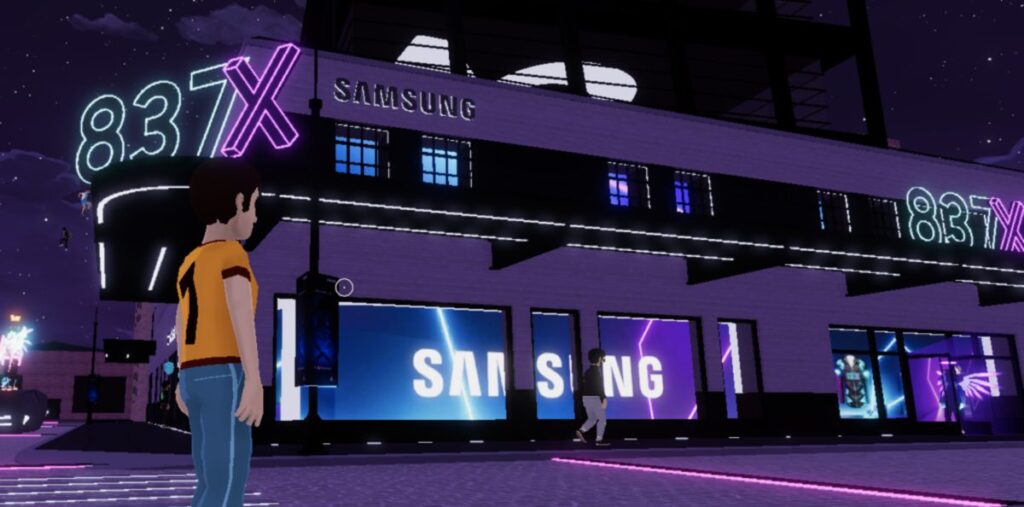
- The South China Morning Post took a novel approach by recreating a digital rendition of the iconic Hong Kong Star Ferry Pier within The Sandbox, further illustrating the vast potential of metaverse real estate.

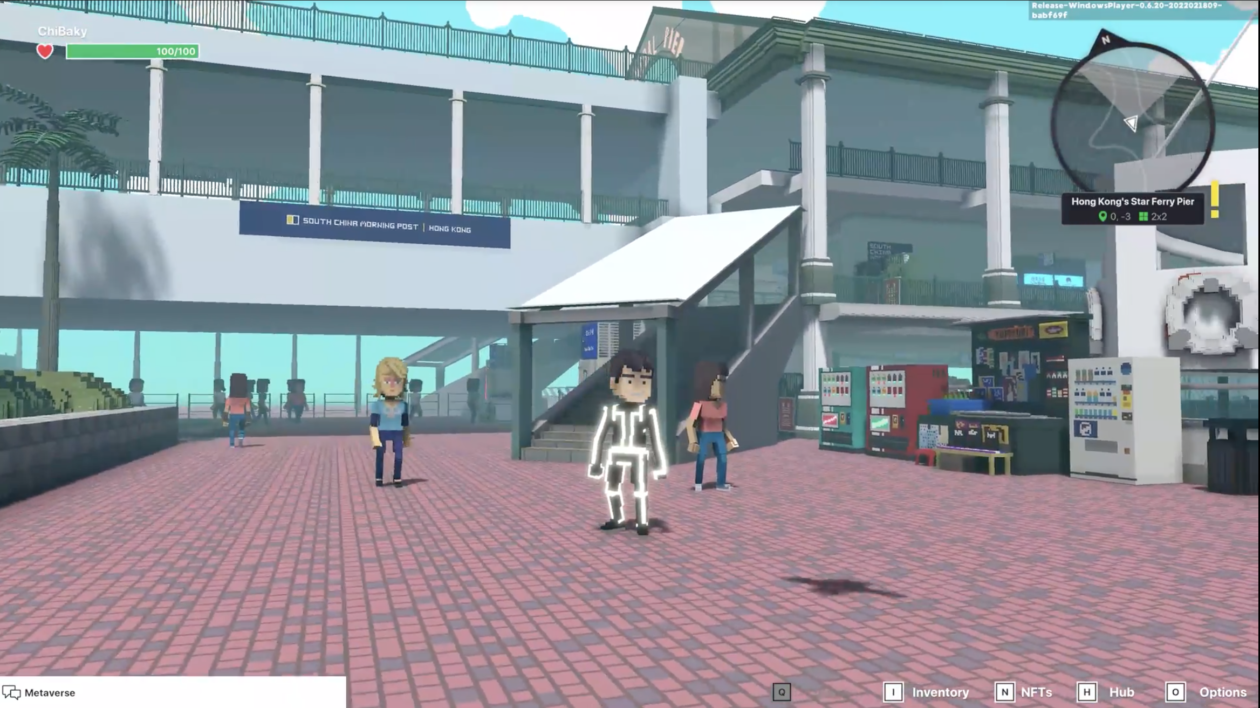
The Expansion of Metaverse Real Estate
The media, the public, and investors worldwide have become captivated by the swiftly expanding following and the increasing sales of metaverse real estate. Influencer Marketing Hub’s data highlights this remarkable trend, indicating that the average price of a parcel in major metaverse platforms surged significantly from $1,265 in January 2021 to $12,684 in February 2022, marking a tenfold surge.
According to McKinsey’s reports, an astonishing $120 billion has already flooded into the metaverse industry in 2022, which is more than double the $57 billion invested in 2021. Despite these seemingly remarkable numbers, it’s essential to recognize that rapid market capitalization growth doesn’t necessarily guarantee the industry’s long-term viability or a robust market. We may need to exercise patience and look beyond this phase of hyper-growth to ascertain the true worth of metaverse property. Nevertheless, a few early investors have already reaped the benefits of the metaverse’s expansion. For instance, a piece of land situated adjacent to Snoop Dogg’s estate was sold for nearly half a million dollars.
What Factors Influence the Pricing of Virtual Land in the NFT Market?
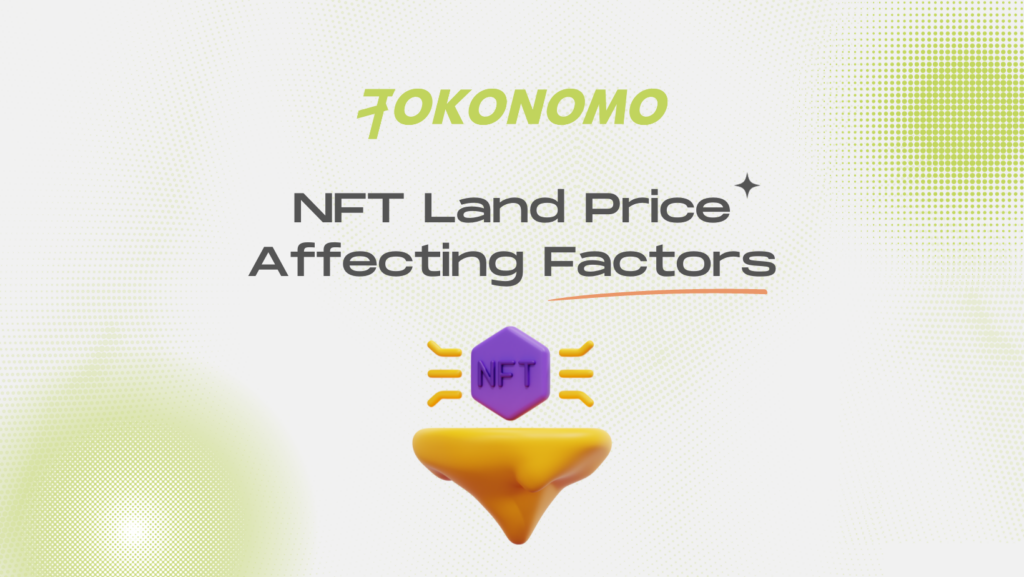

We’ve given a brief overview of the appeal surrounding NFT virtual land, but now, let’s delve deeper into the three fundamental factors that play a crucial role in establishing its price:
- Utility: Each metaverse platform, game, or universe boasts a distinct utility for its virtual real estate. Some offer extensive customization options, while others grant in-game advantages or stat enhancements. When your NFT virtual land exhibits an exceptionally desirable utility, it can command a higher price within the open market.
- Platform: As previously mentioned, the platform on which your land resides not only determines its utility but also carries the weight of the platform’s brand name and reputation, which significantly influence the value of your NFT land. This dynamic is akin to how renowned brands like Nike or Adidas can charge premium prices compared to lesser-known brands offering similar product quality.
- Speculation: The belief that your metaverse real estate could appreciate in value over time often plays a pivotal role in influencing its price. When the entire market shares this optimistic sentiment and demonstrates a bullish outlook on metaverse land values, speculation becomes a prominent factor in determining the price.
Conclusion
The enduring embrace and widespread integration of metaverse real estate extend further than mere hype, as their prosperity hinges on concrete use cases and practicality. Nonetheless, it is intriguing to observe the path metaverse real estate has traversed in a relatively brief period. As the metaverse continues to surge in popularity and evolve its foundational elements, its maturity will also advance. Therefore, gaining knowledge of digital property is a prudent step for any aspiring user or investor intrigued by the metaverse’s future prospects.









